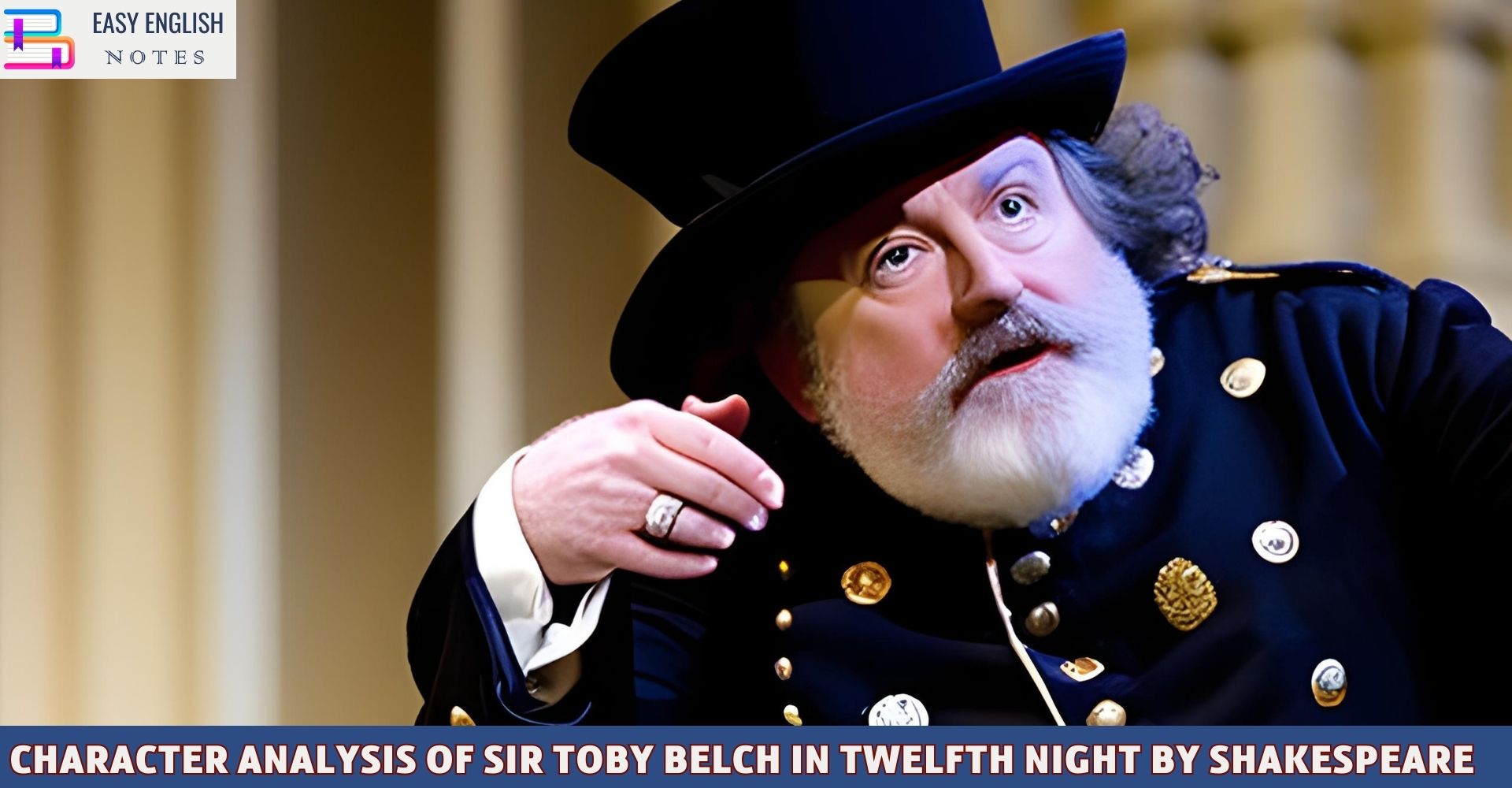Sir Toby Belch is Olivia’s riotous uncle, who lives in her house. He is a boisterous drunkard, a bully, coarse, and impudent, and yet a very positive personality. He has a strong sense of humour and satire, and equally strong insight into the weaknesses of others. He is a liar and a cheater; he respects no one, and yet we cannot help liking him. Perhaps because he is not a coward like Sir Andrew Agueckeek, for he mainly fights with Sebastian, and does not whine about his injuries. He is, however, surpassed by Maria, who ensnares him as her husband with cunning and flattery. Throughout the play he is either drunk or half drunk. It is not surprising that he measures the merits of others by their power to consume alcohol.
Some critics accept Sir Toby, with some justification, as the villain of the play. This opinion is mainly formed due to his constant intrigues in order to gratify his own needs. Despite this fact,’ since he gives so much pleasure to us, it is worthwhile to find out whether this pleasure is of a profound and moral kind, or is it merely a shallow, skin-deep emotion. He is said to be the personification of merry England, and that with him, as per Quiller Couch, “vice has lost half its evil by losing all its grossness.” There are others who find his belching amidst his revelry as grossly unappealing. This makes him also less appealing. Though his belch differs in decibels from the delicate to the natural, and is rarely disgustingly loud, yet it is impossible to make a virtue out of belching as some critics have tried to do. His belching is due to his drinking, and since he is drinking continuously it is not surprising that he belches so much. And there is no need to either gloss over it or to tone it down. His name is part of a well thought out stage direction and has nothing to do with other attributes of the play. To think in any other way is to deny the play its humour. It is due to this that we ought to accept Sir Toby along with his belch.
Also Read :
- Compare Hamlet with Macbeth, Othello and other Tragedies
- “The Pardoner’s Tale” is the finest tale of Chaucer
- Prologue to Canterbury Tales – (Short Ques & Ans)
- Confessional Poetry – Definition & meaning
- Line By Line Explanation Of The Poem The Eve of St. Agnes
He may be gross, but he never offends. In fact he uses his grossness to sidetrack us from some undesirable aspects of his existence. Firstly he is constantly fleecing Sir Andrew off his money, and if we accept it without undue criticism it is because his gross camaraderie camouflages it. Sir Andrew is his manikin; he has him firmly under his control, and due to it manages to fleece him off his money. The irony and the fanciful image hides Toby’s persistent gratification of the self at the expense of another. It is also diluted because of Sir Toby’s cacophonous laughter and continuous belching.
There is a belief that those who hate him are prompted by modern sensibilities. Since such a statement can only mean that the modern is the opposite of historical truth, the logic adds some credibility to their thought process. Yet if we analyse deep enough we would easily know that a truly moral concept is eternal-it cannot be limited to modern or medieval times. It is equally true that fleecing someone of his money is immoral, and merely because Sir Toby has a good time indulging in it does not mean that it aught to become more acceptable to us. In fact even jokingly accepting this trait in him makes us guilty of accepting something which is inherently wrong. Shakespeare too did not accept this kind of revelry and cheating. He vehemently condemns it, when at the end of the play, he gives Sir Toby a broken head. Olivia too condemns Sir Toby at the end of the play for carrying Malvolio’s case too far. There is no doubt that Sir Toby is extremely funny. but he carries his fun and revelry too far, and we often find ourselves condemning him even when we seem to laugh along with him.
PLEASE HELP ME TO REACH 1000 SUBSCRIBER ON MY COOKING YT CHANNEL (CLICK HERE)











